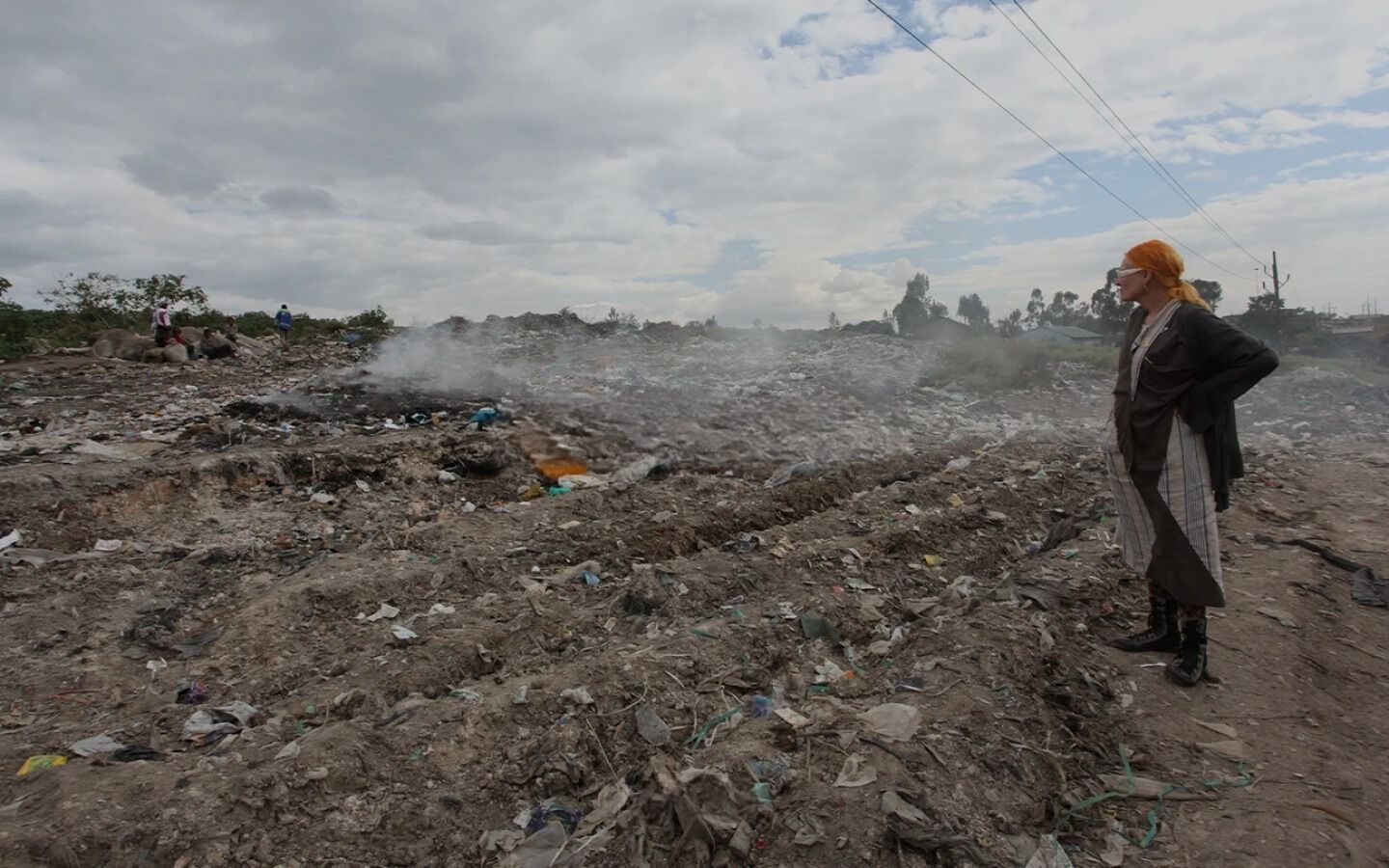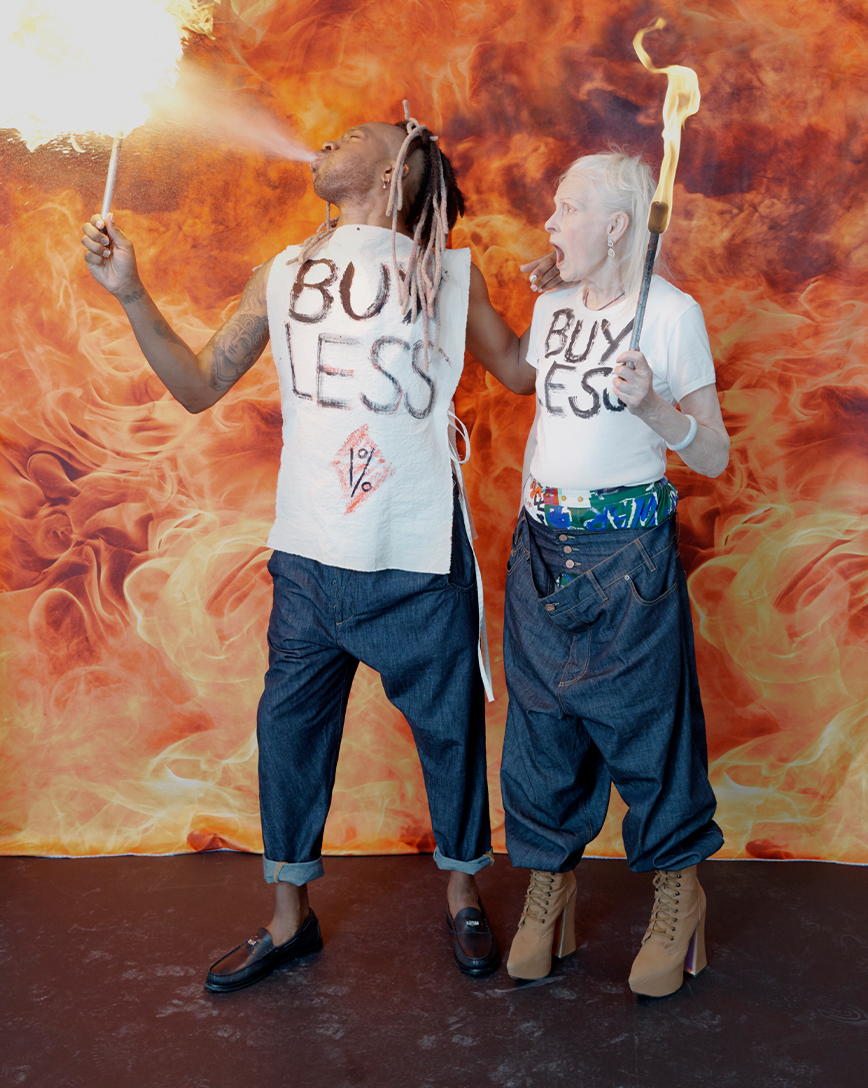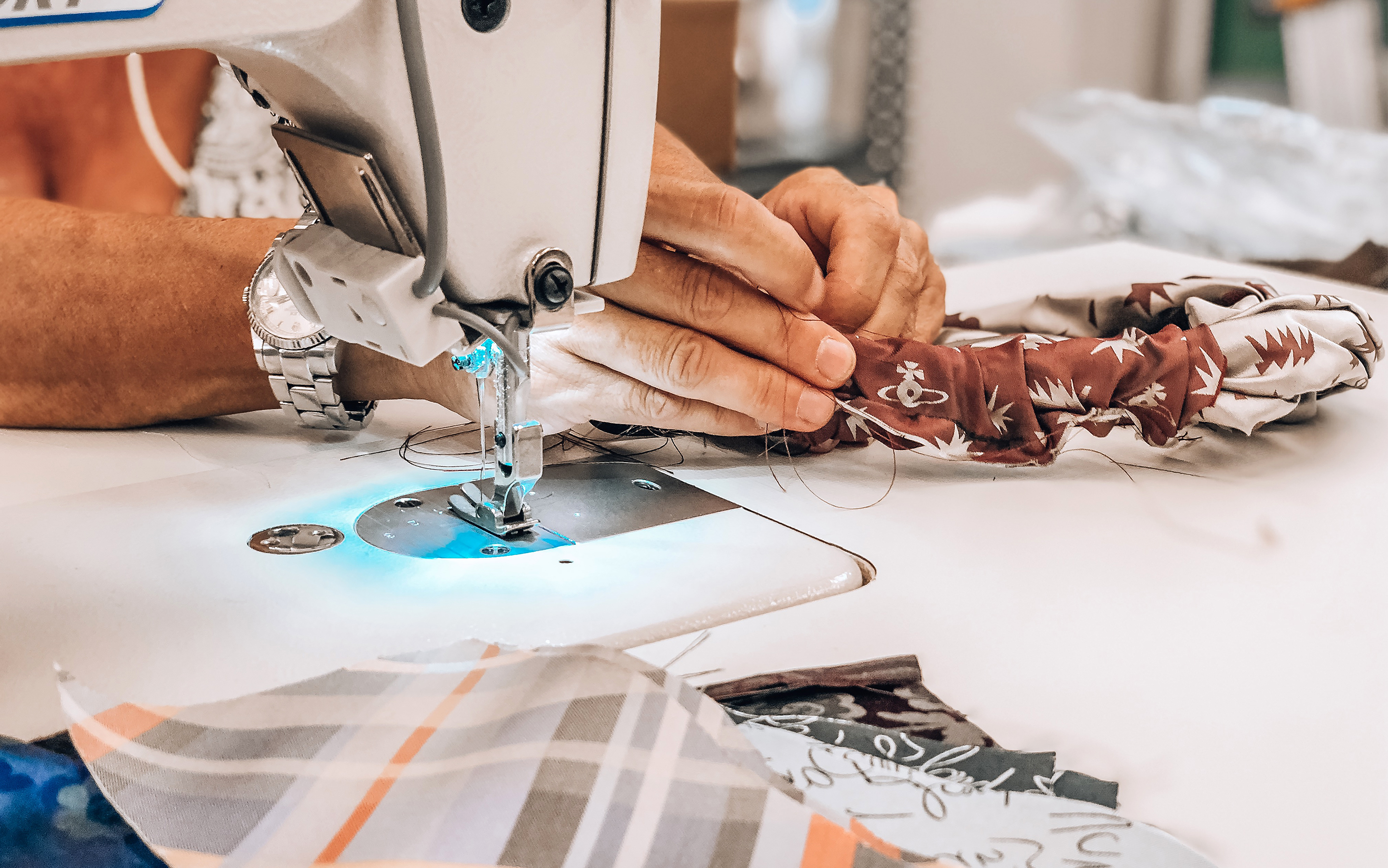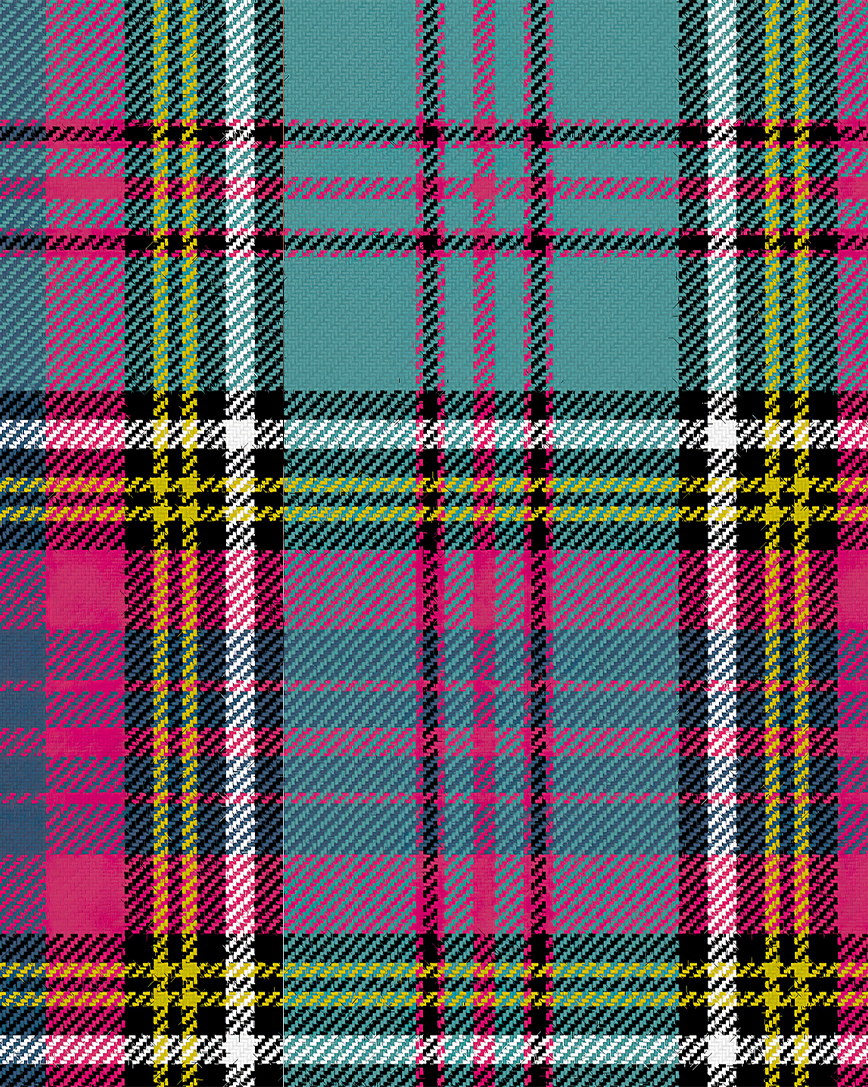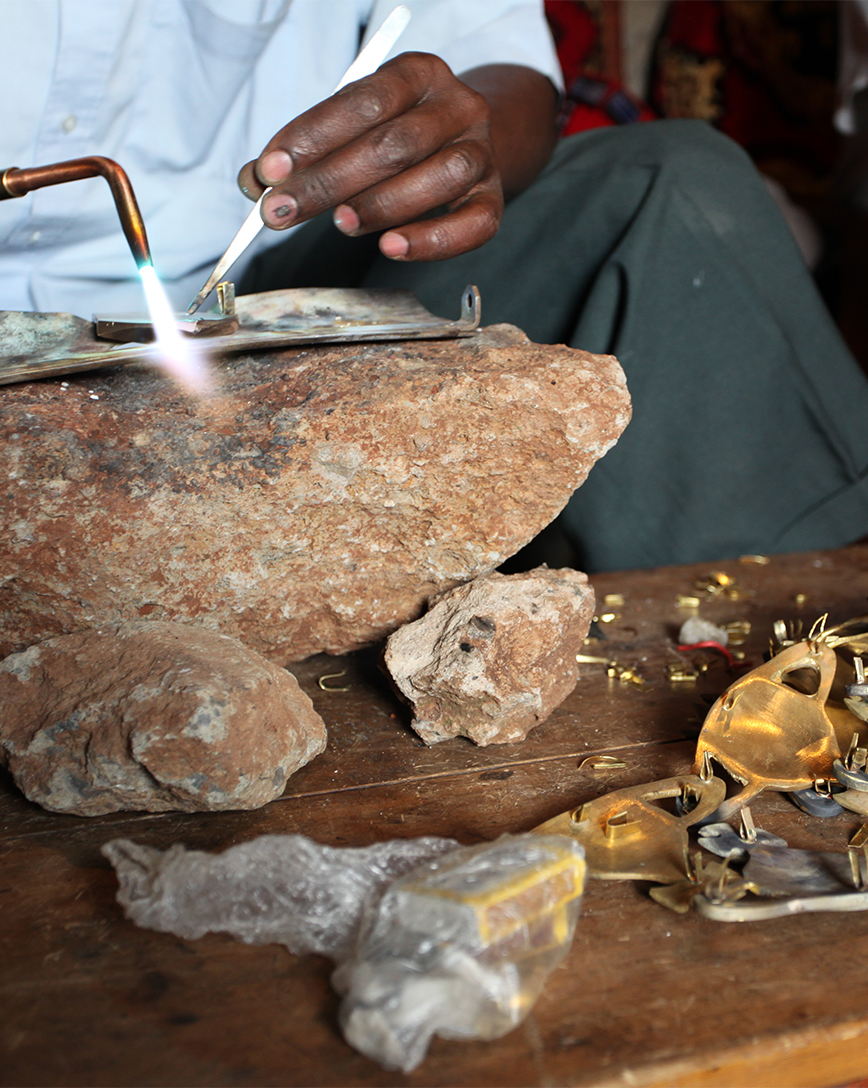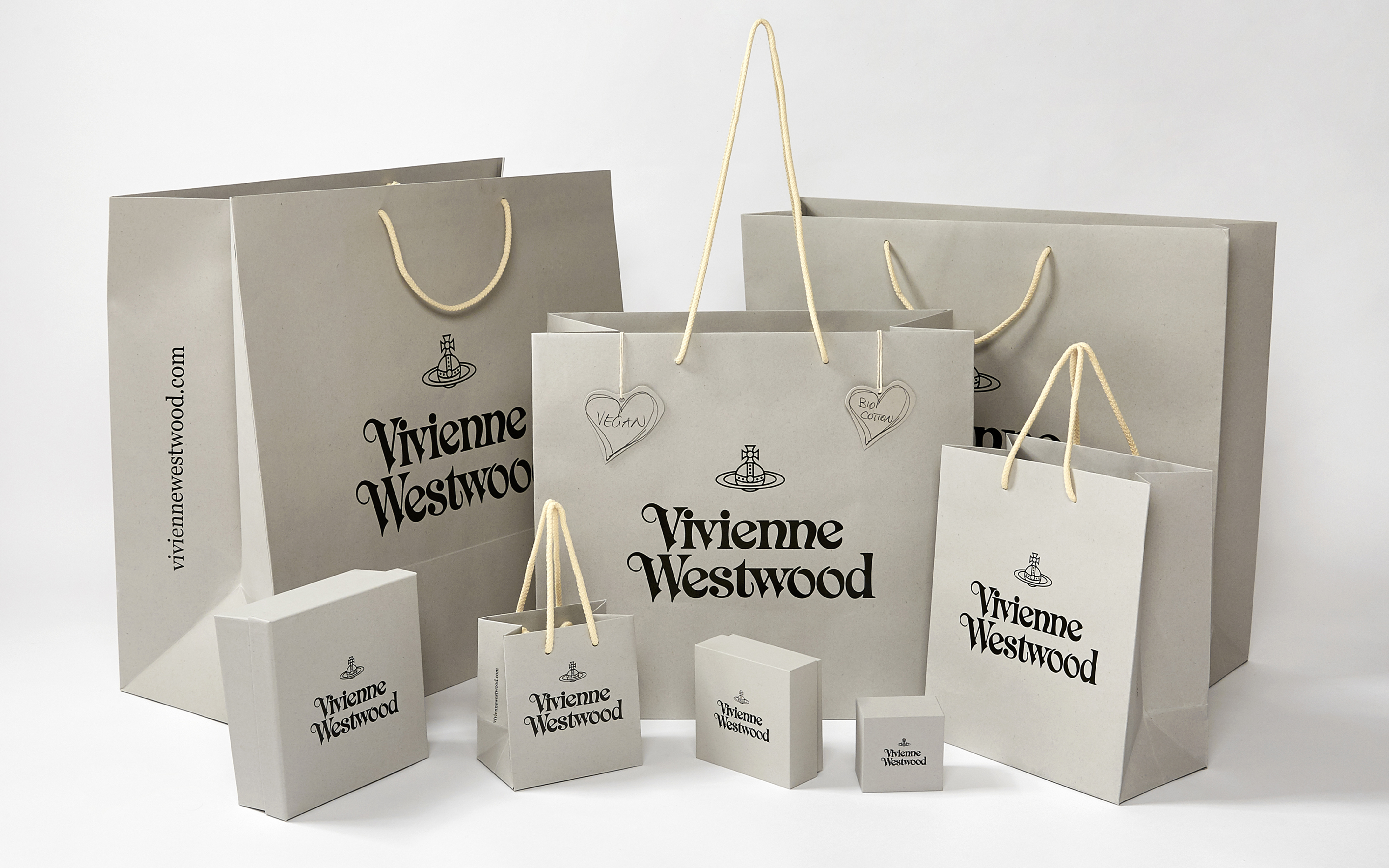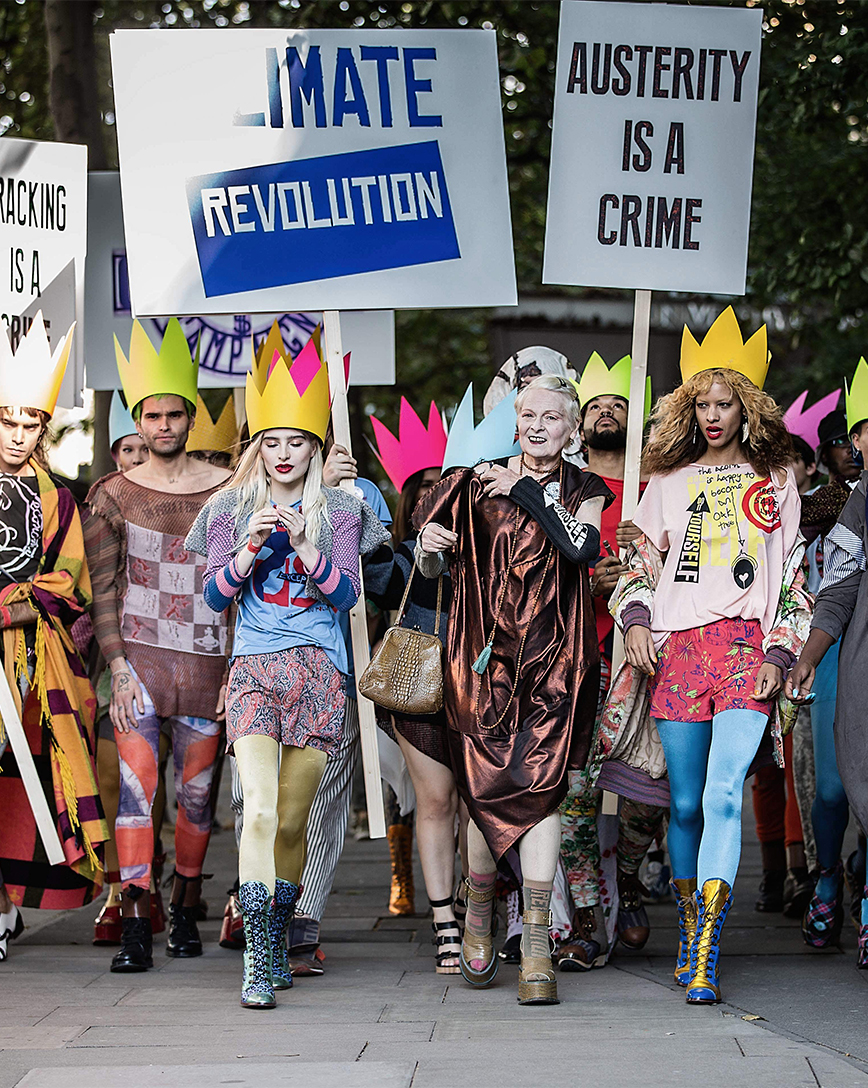For sourcing and manufacturing, our sourcing teams procure quantities that reflect the demand, where possible. When we do have unavoidable leftover material, our first priority is to reintroduce the material back into the design stage for upcoming collections, for example as lining fabric or as a base for new seasonal prints. We also use some leftover fabrics to create our range of unisex World’s End Collection limited edition pieces.
Currently, overstock from seasonal fabric orders is below 5%. To support our approach to preventing and minimising waste, all surplus Vivienne Westwood Group owned products and unused materials from production and sampling have dedicated plans to be reused, upcycled, recycled or donated for the benefit of charitable organisations.
We never destroy unsold goods. Goods which for diverse reasons were not sold through our main channels, are distributed through our outlet stores and public sample sales.
We work with various partners to give a second life to some of these materials in a way that supports their respective missions. Find out more about these initiatives below.
In September 2023, we have started a pilot project which will involve three suppliers and two of our fabrics. The goal of this project is to collect and regenerate offcuts and scraps caused by the production of our garments into new materials that can be used for new products. For the duration of this pilot, we will monitor the amount of scraps collected and regenerated, including the quality of regenerated materials to evaluate their suitability for internal or external use. Based on this data, we will decide whether this pilot has been of value and whether or not to extend this to more fabrics and suppliers.
For Vivienne Westwood it is important to foster creativity and allocate resources accordingly. It is important to support future generations in their endeavor to evolve the current fashion industry. Therefore, we work with multiple universities, supporting a diverse range of projects.
From our London studio, we work with local universities, donating our leftover materials to student projects. This includes materials of different compositions, colours, weights, and thicknesses. Donating leftover material not only gives a second life to our scraps and samples, it aids in fostering creativity for students in the early stages of building careers in the fashion industry.
In Milan, we are participating in an ongoing project with the Politecnico di Milano university, which sees students actively participating in strategy development for waste management, specifically allocation of leftover materials and subsequent inventory management, including target and benchmark analysis, process design and feasibility exercises. Based on the real data provided by Vivienne Westwood, the expected output is a feasible solution for stock reallocation (supported by a cost/benefit analysis). This exercise helps prepare for a future where waste is seen as a resource, as is already the case for Vivienne Westwood.
Since 2021, Vivienne Westwood Italy has been part of the Monitor for Circular Fashion. This multi-stakeholder initiative brings businesses together to share circular fashion best practice, promoting technical, managerial and scientific skills with a view to contributing to the transition towards circular business models. Vivienne Westwood Italy contributes to the development Monitor for Circular Fashion’s yearly report, details of which can be found here.
In partnership with the Monitor for Circular Fashion and SDA Bocconi, we are developing a trial product to assess the possibility of a fully circular product. Considerations include circular design principles, raw material sourcing, manufacturing, transport and logistics, distribution and end-of-life. In September 2023, this pilot project has been presented to the representatives of the EU Commission and UNECE. Details on this project can be found here.
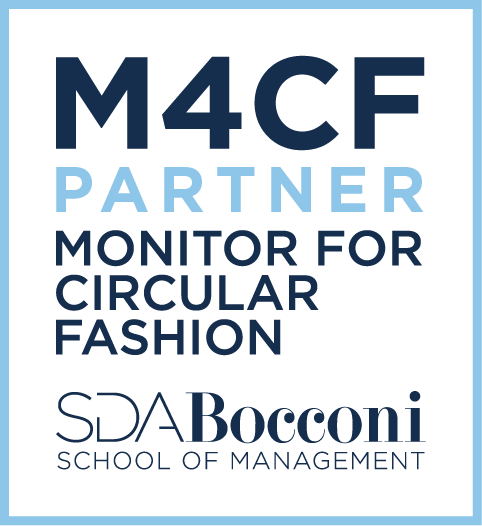
Founded in 2013, Progetto Quid offers employment and career opportunities to those who would otherwise be at risk of exclusion, marginalisation and discrimination in the labour market, with particular attention to women.
Other than being an independent brand, Quid acts as a supplier to Italian and global fashion and lifestyle companies, with specific product lines of accessories and co-branded garments. Through an innovative and hybrid business model, Quid aims to catalyse systemic change by creating social and environmental impact partnerships thinking every day of environmental projects, that reuse surpluses, safeguard the environment and enhance people’s lives and livelihoods.
In 2022, 81% of Progetto Quid’s workforce were women. 65% of workers came from disadvantaged or fragile backgrounds. Of all employees, 40% were migrant workers, of which 81% not only face the challenge of being foreign but also coming from disadvantaged backgrounds. 71% of workers with migrant backgrounds were women.
Progetto Quid has also offered training courses for new hires from marginalised backgrounds, including resources for progression in the workplace and specialisation. There are also mentoring and training programmes in place and coaching on inclusive leadership. In 2022, a total of 469 hours of coaching and professional development were provided for 112 beneficiaries.
We have been working with Progetto Quid since 2021 to give a second life to our leftover materials and to support their endeavour of helping people from marginalised backgrounds get stable and continuous work.
Over the last few years, a total of 87,732 pieces of trims, such as buttons, zips, buckles and 56,860 meters of linings, woven fabrics and other materials were donated.
Find out more about Progetto Quid here.
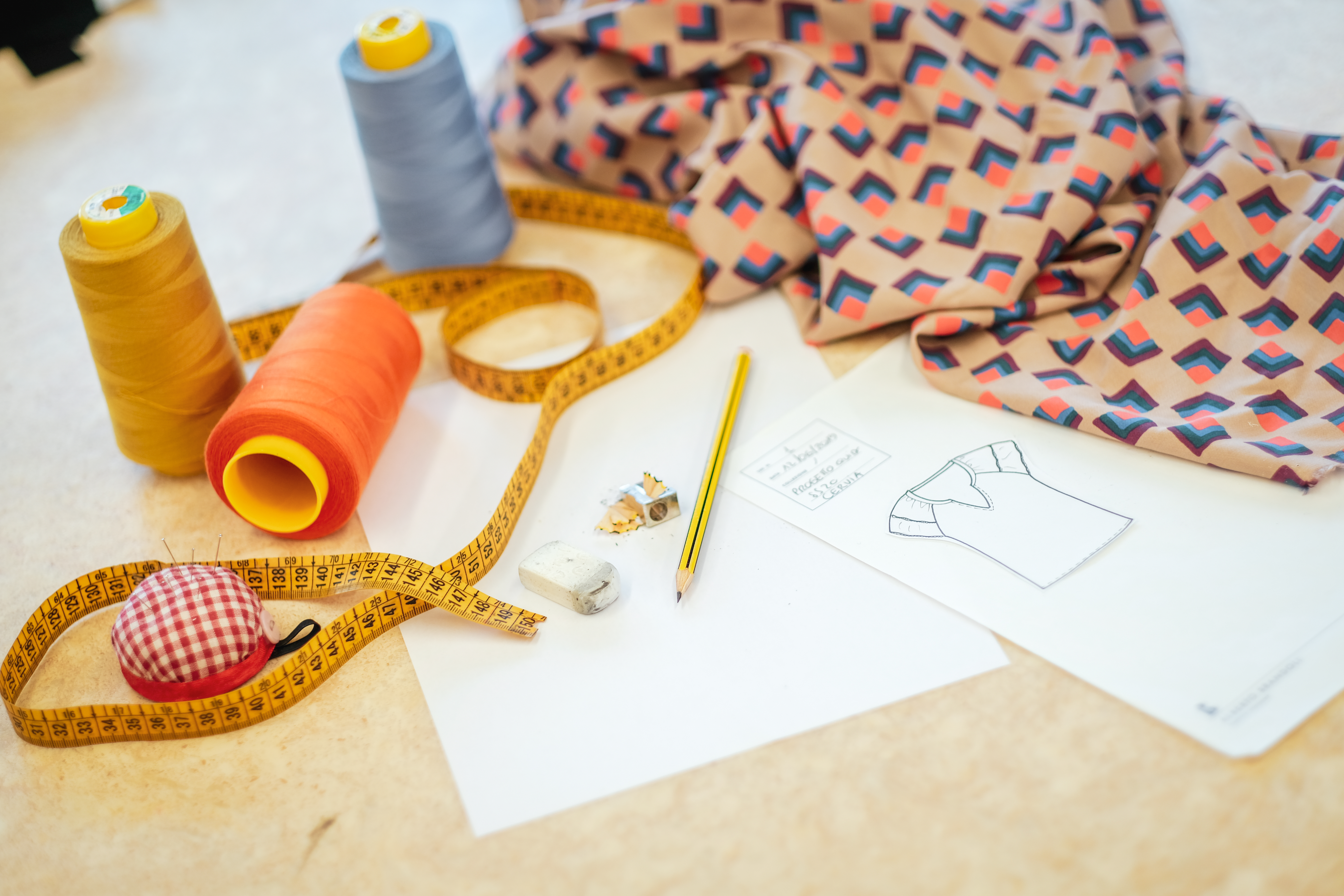
Greenline is a company specialising, amongst others, in the collection and recycling of textile waste. Where our leftover materials are unusable for donation or internal reuse, we sell these to Greenline who recycle material scraps into new raw materials. These newly generated raw materials are then sold on for use in different industries. In 2021, a total of 2,996.9KG of our leftover materials, such as cotton, wool and linen, have been sold to Greenline, who recycled into new materials, almost exclusively for reuse in the automotive industry. In 2022, a total of 3,816 meters of our leftover materials, such as cotton, wool and viscose have been sold to Greenline.
